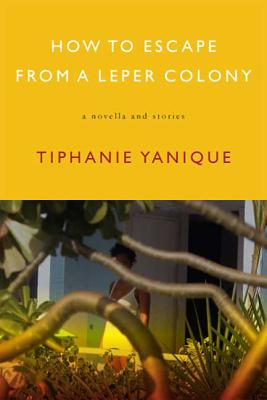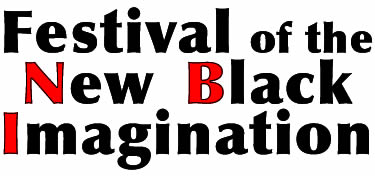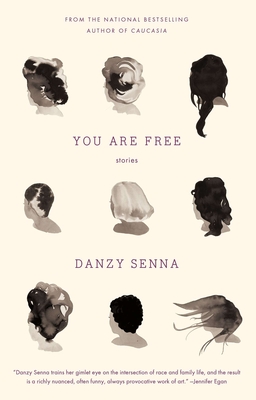
Tiphanie Yanique’s collection
How to Escape From a Leper Colony is one of the best short story collections I have read in recent years, and one of my favorites to recommend. The Caribbean plays a central role, and is given new life on the page. Yanique weaves tales that utilize elements of magical realism to viscerally convey the mélange of cultures and identities that make up the islands.
Tiphanie was generous enough to devote a small window of her time to answer questions for the Greenlight Bookstore Fiction Book Group (held every third Tuesday of every month) that I thought would be nice to share here:
Migration both between the islands and to America and beyond seem to play an important role in many of the stories. Characters often leave to escape their past and return to confront it. Did the colonial history and nature of migration among the islands and from the islands play a role in this? Is it purposeful that there is a dual nature of relationship with the past, that it is both individual and societal?
Your question goes to heart of what I believe is a major emotional theme for the collection. In general, I'm less interested in the "you can never go home" narrative of migration. This might be because I've come of age in a time when the binaries of tourist and native are less, well, binary. Herman in “Kill the Rabbits”, longs to call somewhere home and when he lands on St. Thomas he believes that he has found his place. A big part of this is that his parents are there and that the woman he loves is there. The people make the place home for him. This is honorable. But he can't escape the history of the place, which is one of American colonialism. In fact, for the Virgin Islands, colonialism is not historical, it is the current reality. This social reality is not one that Herman, despite his personal love for Xica, knows how to manage.
I'm interested in the ongoing and complex relationship with people and the places they are from or the places where the end up. I don't think there are many things in our lives that are not both societal and individual.
What influenced the author's decision to make religion and faith such important aspects of nearly every story? Was it the islands' own complicated relationship with religion?
The Caribbean does have a very complicated and rich religious reality. My own personal upbringing was extraordinarily diverse. My high school was at least 25% Hindu but the school itself was Anglican. In my household there were Muslims, Rastafari, Roman Catholics, Evangelical Christians...and that's just the house I grew up in. If I go in to my extended family...hah! It gets wonderfully complicated.
Religion was rarely divisive in my family and friendship groups. When it was, I thought those people were losing out on the beauty of other people. Frankly, I thought the faithful who believed their way was the only way were either not very smart or just assholes.
I know religion has been a real source of tragedy in human history, but somehow I also feel it has been such a great source of beauty and intimacy. I grew up around faiths, so even as a child I saw understanding someone's religion as a way to appreciate that person culturally, romantically, intellectually. I suppose that may be one reason why it plays such a large part in my writing; it's a way for me to build and know my characters.
What about some of the elements of the book? Especially the title story, that seem "tall tale" like. Are these based on folk tales she heard growing up in the Caribbean, or are they largely her own invention? How has she used the stories of the Virgin Island and made them her own in her fiction?
It would be so cool if I could say that these stories were based on myths I grew up hearing. But alas, it's not that cool. These are largely my invention. However, grandmother, who raised me, was a children's librarian. She was definitely my first and most major story telling inspiration. She was the kind of Granny who read serious/literary books and told allegorical stories. Sometimes her stories were fairy tales she made up, other times she told us stories from her own life--but even those always seems metaphorical, allegorical. Those were her hobbies--reading and storytelling. I've always wanted to write serious books that might feel mythical or allegorical in the telling. She instilled that desire in me.
The book seems to have a extremely complex view of the relationship between parent and child. Mothers and fathers appear to be overbearing and distant at the same time. Was the author analogizing this relationship with any other types of relationships (e.g. native v. colonizer, immigrant vs. new national identity)?
The Virgin Islands is a colony of the United States. This status makes us one of the few colonies in the Caribbean. Yet, Virgin Islanders have very little interest in political independence. There was even a big song for Carnival with the lyrics: "let them know you're proud to be an American." This is very strange for a Caribbean island! And yet, Virgin Islanders have been fighting, for a generation, to gain native rights. We've been arguing in the news and over dinner tables for decades about who is really a Virgin Islander and what right "those Americans" should have on "our" land. While I cant' say that I was consciously connecting the parent/child relationship with the colonial relationship, I do think that, given the Virgin Islands' unusual colonial reality, it's a useful way to read the text.
On a personal level, I am very interested in love. I mean, I really believe in love. I'm totally old school over love. I think it's the only thing that ever saves us and I'm really curious as to how it works. I mean romantic love, friendship, familial love--all of it. But I do believe that it all starts with parents. Though both my parents are still living, my grandmother raised me. We were each others special ones and if there is such a thing as soul mate, then she is mine. But I still felt the absence of my biologicals. My own screwy relationship to "parents," along with my curiosity/belief about (for lack of a better term) the power of love has always been a major theme in my writing and likely a major reason I write at all.










